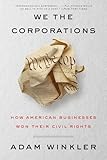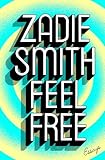







The National Book Critics Circle announced their 2018 Award Finalists, and the winners of three awards: the Ivan Sandrof Lifetime Achievement Award, John Leonard Prize, and Nona Balakian Citation for Excellence in Reviewing.
The finalists include 31 writers across six different categories: Fiction, Nonfiction, Biography, Autobiography, Fiction, Poetry, and Criticism. Here are the finalists separated by genre:
Fiction:
Milkman by Anna Burns (winner of the Man Booker Prize)
Slave Old Man by Patrick Chamoiseau (translated by Linda Coverdale)
The Largesse of the Sea Maiden by Denis Johnson
The Mars Room by Rachel Kushner
The House of Broken Angels by Luis Alberto Urrea
Nonfiction:
The Line Becomes a River: Dispatches from the Border by Francisco Cantú (part of our 2018 Great Book Preview)
Directorate S: The C.I.A. and America’s Secret Wars in Afghanistan and Pakistan by Steve Coll
The Coddling of the American Mind: How Good Intentions and Bad Ideas Are Setting Up a Generation for Failure by Greg Lukianoff and Jonathan Haidt
We the Corporations: How American Businesses Won Their Civil Rights by Adam Winkler
God Save Texas: A Journey into the Soul of the Lone Star State by Lawrence Wright
Biography:
Flash: The Making of Weegee the Famous by Christopher Bonanos
Ninety-Nine Glimpses of Princess Margaret by Craig Brown
Inseparable: The Original Siamese Twins and Their Rendezvous with American History by Yunte Huang
The Man in the Glass House: Philip Johnson, Architect of the Modern Century by Mark Lamster
The Big Fella: Babe Ruth and the World He Created by Jane Leavy
Autobiography:
The Day That Went Missing: A Family’s Story by Richard Beard
All You Can Ever Know: A Memoir by Nicole Chung
What Drowns the Flowers in Your Mouth: A Memoir of Brotherhood by Rigoberto Gonzalez
Belonging: A German Reckons With History and Home by Nora Krug
Old in Art School: A Memoir of Starting Over by Nell Painter
Educated: A Memoir by Tara Westover
Poetry:
American Sonnets for My Past and Future Assassin by Terrance Hayes (read our review)
The Carrying by Ada Limón (found in our August 2018 Must-Read Poetry list)
Holy Moly Carry Me by Erika Meitner
Still Life with Two Dead Peacocks and a Girl by Diane Seuss
Asymmetry by Adam Zagajewski (translated by Clare Cavanagh)
Criticism:
Is It Still Good to Ya?: Fifty Years of Rock Criticism, 1967-2017 by Robert Christgau
Tyrant: Shakespeare on Politics by Stephen Greenblatt
To Float in the Space Between: A Life and Work in Conversation with the Life and Work of Etheridge Knight by Terrance Hayes
The Reckonings: Essays by Lacy M. Johnson
Feel Free: Essays by Zadie Smith (found in our February 2018 Monthly Book Preview)
Here are the winners of the three stand-alone awards: Arte Público Press won the Ivan Sandrof Lifetime Achievement Award for their contributions to book culture. Maureen Corrigan won the Nona Balakin Citation for Excellence in Reviewing. Tommy Orange’s There There won the John Leonard Prize for a first book in any genre. (Read Orange’s 2018 Year in Reading entry).
The winners of the National Book Critics Circle awards will be announced on March 14, 2019.
The post National Book Critics Circle Award Finalists Announced appeared first on The Millions.
from The Millions http://bit.ly/2R4y4JS
Comments
Post a Comment